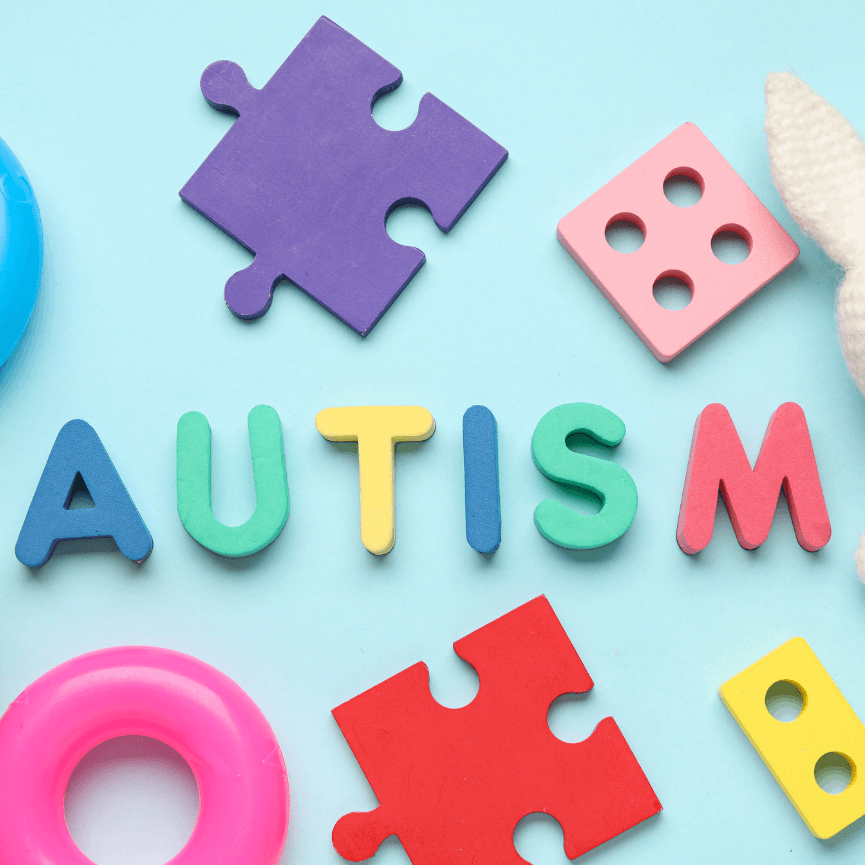
- Nov 09, 2024
- 136 Views
- 0 Comments
From Diagnosis To Support: The Journey Of Autism Services
The journey from an autism diagnosis to finding the right support is life-changing, yet it can be overwhelming. Understanding the process, from identifying signs to exploring resources, makes this path less daunting for families. Autism services cover a spectrum of support systems designed to help individuals with autism thrive in daily life, school, and beyond.
Understanding Autism Spectrum Disorder (ASD)
What is Autism?
Autism Spectrum Disorder (ASD) is a developmental condition that affects communication, behavior, and interaction with others. People with autism often experience these challenges uniquely, as no two cases are alike.
Common Signs and Symptoms of ASD
The signs of autism typically appear in early childhood and can vary widely. Some common symptoms include delayed speech, difficulty with social interactions, and repetitive behaviors. Recognizing these signs is crucial for early intervention.
Importance of Recognizing ASD Early
Early identification allows for prompt support, increasing the chances of improved communication and learning. Parents and caregivers should seek guidance if they notice any developmental delays or behavioral differences.
The Diagnosis Journey
Steps in Diagnosing Autism
Diagnosis begins with observing developmental patterns, followed by a series of assessments. These can include questionnaires, behavioral observations, and testing by specialists.
Common Diagnostic Tools and Tests
Some commonly used diagnostic tools include the Autism Diagnostic Observation Schedule (ADOS) and the Modified Checklist for Autism in Toddlers (M-CHAT). These tools help professionals assess the child’s developmental milestones.
Role of Pediatricians and Specialists
Pediatricians are often the first professionals to detect signs of autism. They may refer families to specialists like developmental pediatricians or psychologists for further testing.
Challenges Families May Face in the Diagnosis Process
Obtaining a diagnosis can be emotionally taxing, with long wait times and potential financial costs. However, support from healthcare professionals and autism organizations can ease this journey.
Types of Autism Services Available
Early Intervention Programs
Early intervention offers children specialized support before they reach school age. Services like speech and occupational therapy can significantly improve developmental skills.
Behavioral Therapies
Behavioral therapies are often at the core of autism services. These therapies help children improve social skills and adapt to new environments.
Applied Behavior Analysis (ABA)
ABA is one of the most widely used therapies for autism. It focuses on teaching positive behaviors while minimizing behaviors that may interfere with daily functioning.
Speech and Language Therapy
This therapy helps children communicate more effectively. Speech therapists work with children to improve both verbal and nonverbal communication.
Educational and School-Based Services
School-based services provide essential support as children enter educational settings. These programs ensure children have the tools they need to succeed academically.
Individualized Education Programs (IEPs)
An IEP is a tailored educational plan that outlines specific goals and accommodations for a child with autism. These programs are legally required in public schools in many countries.
Special Education Classes
Special education programs cater to children with autism, offering them a more supportive environment and specialized curriculum.
Building a Support System for Children with Autism
Role of Family and Friends
A child’s family and friends play a crucial role in providing emotional support and fostering acceptance. Educating loved ones on autism helps create a compassionate environment.
Engaging with Autism Support Groups and Communities
Support groups offer a safe space to share experiences, gain advice, and receive emotional support from others on a similar journey.
Creating an Inclusive Environment at Home and School
An inclusive environment promotes learning and confidence. Small adjustments, such as sensory-friendly spaces, can make a significant difference.
Government and Community Resources for Autism Support
Financial Assistance and Grants for Autism Services
Many governments offer financial support to cover autism therapies. Grants and assistance programs can alleviate some of the costs associated with specialized services.
Accessing Community Programs and Events
Community organizations host events and programs that allow children with autism to participate and connect with others. These activities encourage social interaction in a safe, supportive setting.
How Technology is Shaping Autism Services
The Rise of Assistive Technologies
Assistive devices, such as communication boards and tablets, have become valuable tools for individuals with autism to express themselves more effectively.
Teletherapy and Online Support Options
Teletherapy provides a flexible way for families to access therapy remotely. Online platforms also offer resources for both therapy and support.
Apps and Tools for Autism Support
Apps designed for autism support focus on communication, emotional regulation, and learning. They provide interactive ways to build skills at home.
Success Stories: Navigating the Path with Autism Support
Stories of individuals who have thrived with autism services demonstrate the impact of early and consistent support. These stories inspire hope and perseverance.
Aarav’s Path to Communication
Diagnosed with autism at three, Aarav struggled to express himself verbally, which often led to frustration. With the support of a speech therapist using visual aids and simple language exercises, Aarav gradually progressed from picture cards to speaking in small phrases. Now eight, he communicates confidently with his family and friends, a testament to the power of patient, supportive strategies.
Meera’s Social Growth
Meera, a young girl with autism, found social interactions challenging and often felt isolated at school. With help from her teachers and a peer buddy system, Meera joined structured playgroups where she gradually gained confidence and started engaging with classmates. At twelve, she now enjoys participating in group activities, showing how inclusive support can make a profound difference.
The Power of Early Intervention and Consistent Support
Children who receive early intervention often experience improved outcomes. Consistent support enables steady growth and learning.
From the initial diagnosis to building a lifelong support system, the journey through autism services is both challenging and rewarding. Families embarking on this path will find support and resources that guide them toward a brighter future.



Comments - 0 comments till now